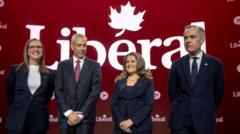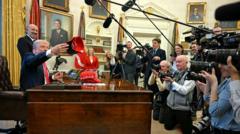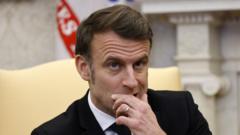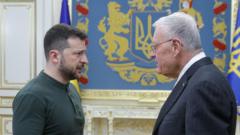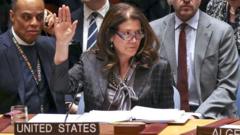As President Trump votes against a U.N. resolution condemning Russia's actions in Ukraine, he aligns the U.S. with nations like North Korea and Belarus, marking a significant departure from its longstanding partnerships with Western allies.**
Trump’s Alliances Redefine U.S. Foreign Policy Amid Ukraine Conflict**

Trump’s Alliances Redefine U.S. Foreign Policy Amid Ukraine Conflict**
Analysis of President Trump's shift in international alliances highlights a potential pivot away from traditional allies toward rogue states.**
In a striking turn of diplomatic events, President Trump has marked his return to the White House by taking the United States in a direction that could reshape long-standing international alliances. Recently, during a vote at the U.N. General Assembly, Trump cast the U.S. vote against a resolution condemning Russia's invasion of Ukraine, occurring on the war's third anniversary. This action facilitates a distinct alignment of the U.S. with countries like North Korea, Belarus, Syria, and Sudan, while opposing nations that have historically been its allies, including Britain, France, Germany, Canada, Japan, and Italy.
This shift hints at a radical recalibration of U.S. foreign policy wherein Trump, just weeks back in office, appears to drift towards aligning with the world’s rogue states. Such notable realignment raises significant concerns among traditional allies. From behind their diplomatic desks in Poland, France, and Britain, leaders plan to navigate the complexities of re-establishing cooperative relationships with an administration that seemingly does not share their common values or priorities.
The implications of Trump’s strategic choices could be profound, as traditional allies grapple with a leader who discounts established international norms. While diplomatic visits from leaders seeking to reinforce the transatlantic alliance are underway, it becomes increasingly clear that Trump’s foreign relations strategy may forge a new era, prioritizing ties with nations that have frequently challenged U.S. ideals.
As the question of U.S. leadership in fostering global cooperation hangs in the balance, Trump's actions suggest a potentially enduring transformation in how America engages with the world.





